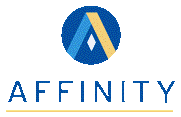|
MARKETS OVER REGULATION: COMMUNICATION IS KEY IN
CONDO TERMINATION
By
Rafael Aquino
Published August 14, 2024
Condominium
management's intricate dance between regulation and market forces is
ever-present. Regulations are vital; they provide structure, protect
homeowners, and set clear boundaries for all. However, we can never
regulate every possible scenario. This is particularly evident in
condominium terminations—a process that can quickly become complex,
even with stringent laws in place.
Consider the scenario
where a developer intent on terminating a condominium begins by
purchasing enough units to control a majority of the Board of
Directors. From there, the developer might assert that the property
is in such dire condition that extensive repairs are necessary,
leading to massive special assessments. Often, this is where
remaining unit owners feel the pressure. Unable to afford these
assessments, they may feel cornered into selling. The law does
provide some protections, such as requiring a certain percentage of
owners to agree to the termination, but these safeguards can be
bypassed through other legal avenues.
For instance, a
developer can argue that the repair cost exceeds the units' market
value post-repair or that it's impossible to restore the property
due to existing regulations. Even if regulations are in place to
prevent a termination without unanimous consent, there are still
ways to maneuver around them, as developers have shown time and time
again. This reveals a critical truth: regulations, while necessary,
are inherently limited.
If your association
was in good standing and had a solid financial backbone, you likely
wouldn't find yourself in this precarious position. A financially
sound association, particularly one in a prime location, has
significant leverage. When an association is well-managed and
financially sound, it becomes much more challenging for a developer
to push through a termination. In such cases, the association's
strength can become a powerful negotiation tool, giving homeowners
greater control over their destiny.
This is where market
forces come into play. The flexibility and adaptability of market
mechanisms allow for creative solutions to problems that regulations
alone cannot solve. However, this flexibility also means that the
parties involved must be vigilant. It underscores the importance of
clear communication and good-faith negotiations between developers,
unit owners, and board members.
The situation can
quickly spiral into conflict when egos, hidden agendas, or lack of
communication take over, leaving homeowners feeling powerless and
trapped. However, when boards and owners communicate openly and
honestly, seeking solutions that benefit all parties, the market can
work in everyone's favor. Whether negotiating fair buyouts, agreeing
on repair costs, or finding a middle ground on assessments, the key
is allowing discussions to unfold naturally without letting emotions
cloud judgment (easier said than done.)
In the end, no amount
of regulation can substitute for clear communication and the
willingness to engage in meaningful dialogue. Markets are dynamic
and responsive precisely because they operate on the principle of
negotiation and compromise. By fostering an environment where these
principles can thrive, we can navigate even the most complex
scenarios—like condominium terminations—without getting bogged down
in the limitations of regulation alone.
|
|
 |
As the Co-Founder and CEO
of Affinity Management Services, Rafael P. Aquino leads his team to
redefine excellence. They serve community associations
efficiently |
|
and effectively with
dedication and passion. Rafael’s energy and positive
spirit is the foundation of Affinity Management
Services’ company culture, which instills enthusiasm and
excitement when providing expert advice to its board
members and relieving the day-to-day burdens of running
a community association.
Since 2007, Rafael has
developed a work culture that values responsive and
high-quality services. He has led his team by following
a proactive vs reactive philosophy. The same approach
Rafael instills in the day to day operations of each
association. Today, Affinity Management Services
maintains its success and benefits as a result of the
foundation Rafael has built and continues to foster by
providing educational seminars, continuing education
classes for association managers and board members
alike.
Rafael and his team help condominium and homeowners’
associations save money and improve their communities.
His calm, personable, and service-oriented nature helps
him to establish strong relationships with ease. Rafael
is known as a sincere and honest leader who looks out
for the best interests of his clients and communities,
and he strongly advocates for their needs. His role
requires coordination and communication, as such he
takes logical and intelligent steps to approach
challenges head-on.
As a graduate of Florida International University’s
electrical engineering program and a licensed community
association manager, Rafael’s education and skills equip
him with unique insights to tackle complex problems
through critical thinking. He understands how each
component within a system works together in order to
effectively arrive at solutions, techniques, and
conclusions. Therefore, as he manages the multiple
challenges of running a community association management
company, he understands how each property is its own
unique system and tailors’ specific services to assure
that all their needs are met.
For more information about Rafael P. Aquino and Affinity
Management Services please visit
www.ManagedByAffinity.com or call 1-800-977-6279
|
|

Doral Office: 8200 NW 41st ST
Suite 200
Doral, FL 33166
Broward Office: 150 S Pine Island RD Suite 300
Plantation, FL 33324
O: 800-977-6279 ● F: 305-325-4053
|
|


